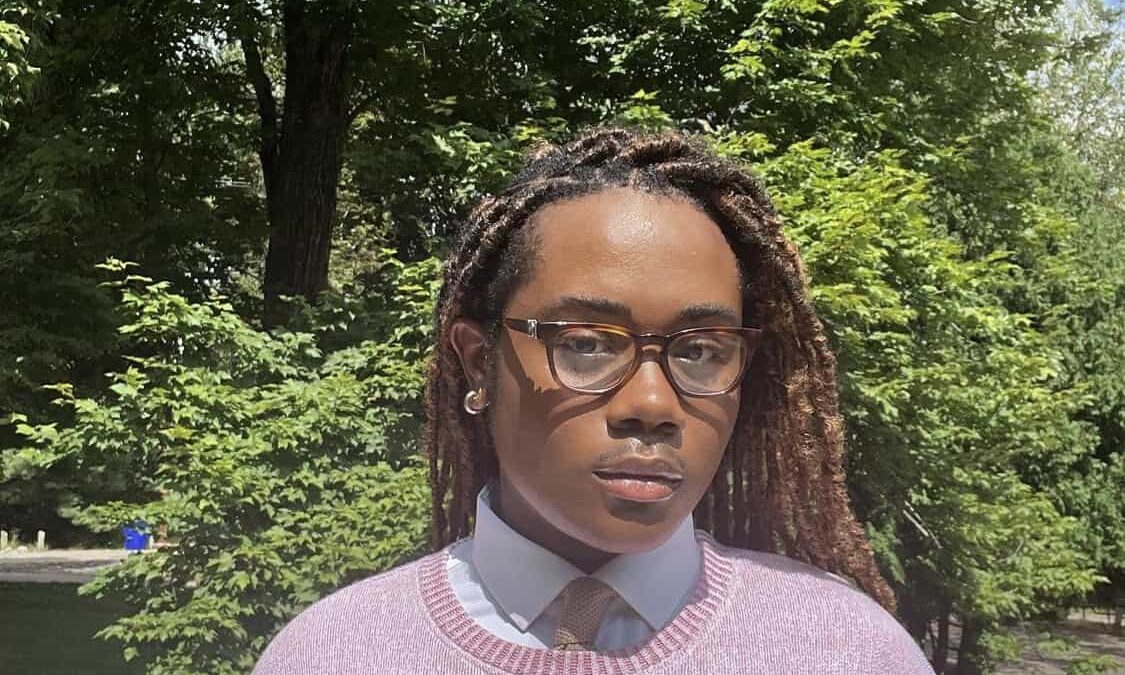O. RENÉ GARRETT WRIGHT, Staff Writer—
The question of whether or not Denison should limit free speech suggests that Denison does not limit free speech already. In a critique of this question I take issue with the marginalization of Black and poor students and the security of those limits on free speech. Denison marginalizes Black and poor students by creating wealthy graduates whose class status and class interests change from graduation into corporate America. Marginalization of Black and poor perspectives also take the form of maintenance as the status quo that disenfranchises minorities including the Black, poor, queer, disabled, and neurodivergent. These forms of marginalization are so evidence that we cannot possibly answer the question of “should Denison limit free speech?” Arguing against limits on free speech reproduces the injury of epistemic erasure. Marginalized students on campus are aware of the multiple social stigmas we navigate and to question, and the attempt to unsettle the truth of this rumination with a debate secures the status quo by reinforcing the marginality I’ve identified.
In Savage Inequalities, a book published in 1991 by Rhodes Scholar and Gugenheim Fellow, Jonathan Kozol discusses the disparities between education offered to different classes and races. Kozol aptly points out that education is not a public solution to poverty in a society where education is privatized and commodified. Instead of creating an educated lumpenproletariat with access to socio-economic mobility, education in the United States reproduces socio-economic segregation by taking poor students with potential, educating them, and changing their class status, thus leaving the volume of poor people in our society effectively unchanged. In enforcing the restrictions on economic mobility for the poor, Denison, as an institution of higher education, marginalizes social and political parity for poor students. By doing so, liberal arts colleges are able to secure a diverse student body of only the best and brightest poor and Black students. Uniquely complicated, the pursuit of higher education for Black and poor students represents a system of marginalization that necessitates the question of whether or not Denison should limit free speech politically preemptive and dismissive of those actively seeking parity in our community.
To structurally reproduce a system of marginalization, Denison enforces and models the borders around which freedom of speech is policed. In public and in private, there is a cultural imperative to hold sanitized views that reflect corporate values of productivity, liberal discourse, that is discourse sans activism, and bureaucratic dismissal. The limits placed on free speech favor easy processes of wealth accumulation and exchange as well as enforces silence on politics. Have we ever stopped to ask ourselves what the political interest of Denison is? Denison has no political interest. As a private institution, Denison administrates a 1 billion endowment, which has ballooned to this point as a benefit of a communications and administration strategy that is politically flat. In only accruing the latest strategies in DEI, donning itself with a committee on antiracism, and failing to meaningfully engage with racism at an institutional level, Denison facilitates an academic culture that is dangerously silent on racism, antiBlackness, poverty, and ableism. In preparing the managers and directors of corporate America, Denison students are taught to be “autonomous moral agents” that understand the old adage, time and place. Given existing limits on the freedom of speech on campus, we should not be answering the question “should Denison limit free speech?” To attempt to do so, is epistemic erasure, and itself, injurious.
Finally, the status quo remains unchallenged at Denison and this is intentional. Denison engages in a visibility strategy that undermines the notion that freedom of speech is limited on this campus. By having this debate we cannot say that community members do not have a venue to express their frustrations with a culture of moderate politics. The neoliberal ploy dismisses radical perspectives that seek intervention at different sites and levels. Ultimately the goal of a forum like the one in which we stand is to funnel dissent here and extinguish it elsewhere. Raising visibility here conceals visibility elsewhere, at the protest, at the march, at the student union. By raising voices here, Denison is able to secure silence elsewhere. To proceed with this debate as if this visibility stunt is not part of a larger program of silencing and further reinforces the marginalization of Black and poor perspectives in our community.


Kyle
More word salad as usual gas lighting with the standard word: black, marginalized, etc. No one cares about these views anymore because we know it’s more in the writers head than in their world